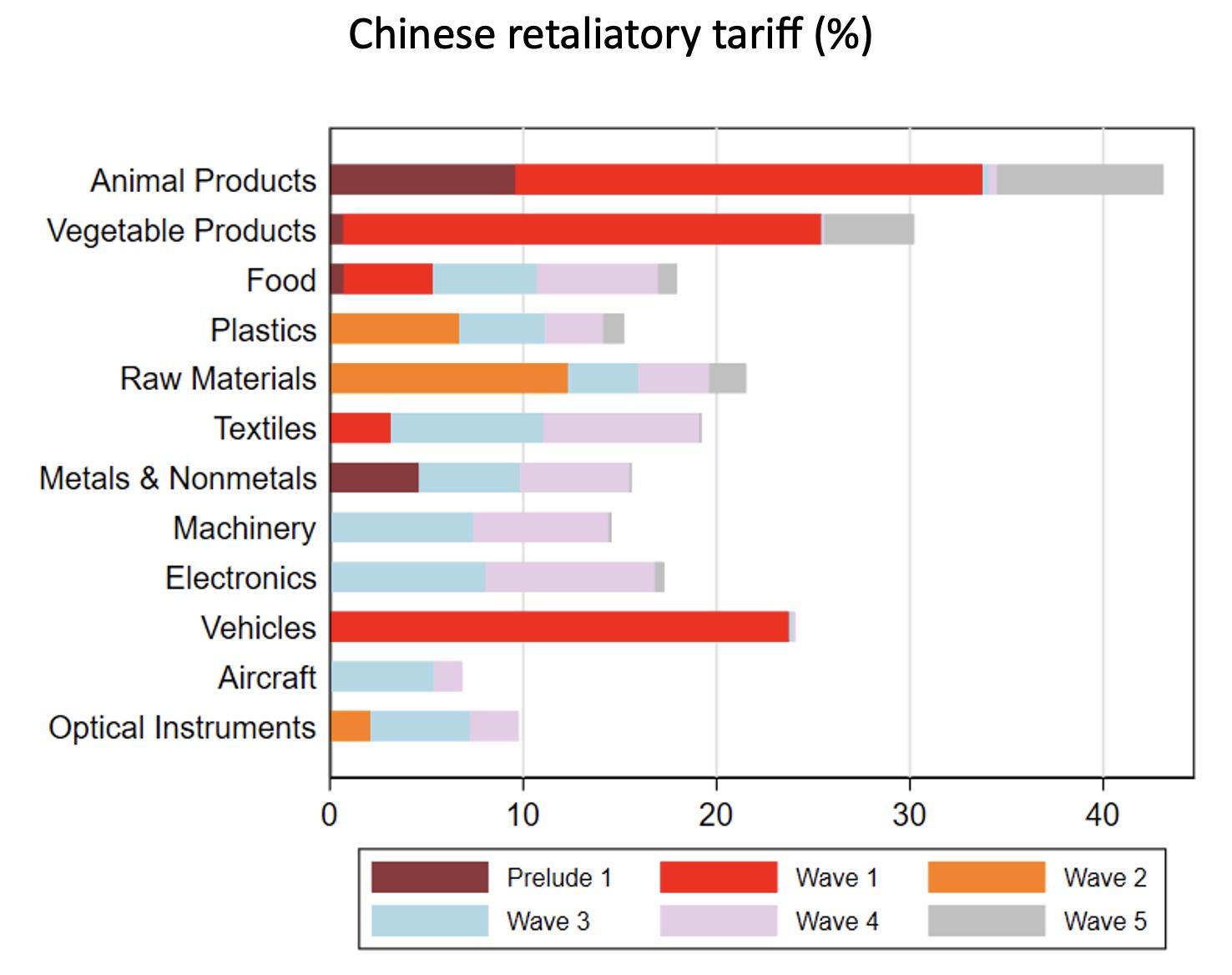Switzerland And China Seek Common Ground On Tariff Policies

Table of Contents
Switzerland's Approach to Bilateral Trade Agreements with China
Switzerland boasts a long history of fostering free trade agreements, believing in the mutual benefits of open markets. This commitment significantly shapes its approach to bilateral trade agreements with China. Swiss-Chinese trade relations are underpinned by a pre-existing free trade agreement, which, while successful in some areas, still faces limitations.
-
Existing FTA's Successes and Limitations: The current agreement has facilitated increased trade volumes in certain sectors, but challenges remain in others, particularly regarding non-tariff barriers. Specific success stories and areas needing improvement require detailed case-by-case analysis.
-
Commitment to Multilateral Trade Systems: Switzerland's strong commitment to the World Trade Organization (WTO) and its rules-based system influences its approach to bilateral agreements. Any bilateral deal must adhere to WTO compliance requirements, ensuring fairness and preventing discriminatory practices.
-
Tariff Reductions and Concessions: Previous agreements have resulted in significant tariff reductions on various goods. Analyzing these historical concessions reveals valuable insights into potential areas for future collaboration and tariff reduction opportunities in Swiss-Chinese trade relations.
China's Perspective on Tariff Negotiations with Switzerland
Understanding China's overall trade policy is crucial to comprehending its objectives in negotiations with Switzerland. China’s economic strategies, particularly its ambitious Belt and Road Initiative (BRI), significantly impact its approach to bilateral trade agreements.
-
The Belt and Road Initiative's Influence: The BRI aims to enhance connectivity and infrastructure across Eurasia, potentially creating new trade routes and investment opportunities with Switzerland. This presents both opportunities and challenges regarding Swiss-Chinese trade relations.
-
Attracting Foreign Direct Investment (FDI): China's focus on attracting foreign investment naturally shapes its tariff policies. Offering favorable tariff regimes can incentivize Swiss companies to invest in China, fostering economic growth and technological advancement.
-
Intellectual Property Rights and Market Access: Concerns regarding intellectual property rights (IPR) protection and market access in Switzerland remain key aspects of negotiations. Addressing these concerns is vital for building trust and mutual benefit in Swiss-Chinese trade relations.
Areas of Potential Common Ground and Challenges
While significant potential for common ground exists, several challenges hinder seamless trade liberalization between Switzerland and China. Identifying these areas is crucial for fostering effective bilateral trade negotiations.
-
Sectors ripe for Tariff Reductions: Both countries could benefit from reduced tariffs in sectors such as pharmaceuticals, precision instruments, and certain agricultural products. Sector-specific tariffs deserve focused attention in negotiations.
-
Navigating Non-Tariff Barriers: Non-tariff barriers, including regulations, standards, and customs procedures, present significant hurdles. Addressing these requires a collaborative approach, focusing on mutual recognition of standards and streamlining customs processes.
-
The Role of the WTO in Mediation: The WTO's dispute settlement mechanism plays a critical role in resolving trade disagreements. Utilizing the WTO framework for mediating disputes can help ensure that bilateral trade negotiations are conducted fairly and transparently within a rules-based system.
The Role of Innovation and Technology in Shaping Tariff Policies
Technological advancements are rapidly reshaping international trade, influencing tariff policies in unforeseen ways. This necessitates proactive adaptation and collaboration between Switzerland and China.
-
E-commerce and Tariff Structures: The rise of e-commerce necessitates adapting tariff structures and customs procedures. Innovative solutions are needed to efficiently manage cross-border e-commerce transactions while adhering to tariff regulations.
-
Digital Trade Agreements: Digital trade agreements are crucial in reducing barriers to cross-border data flows. These agreements should be carefully designed to address data privacy concerns while promoting the growth of digital trade.
-
Customs Modernization through Technology: Technology can greatly enhance transparency and efficiency in customs management. Investing in technology-driven solutions can streamline customs procedures, reducing delays and costs for businesses.
Conclusion
The ongoing negotiations between Switzerland and China regarding tariff policies reflect a strong commitment to bolstering bilateral trade relations. While challenges involving Switzerland-China tariff policies remain, the potential for mutually beneficial cooperation is substantial, particularly in areas such as reducing sector-specific tariffs and modernizing customs procedures. By finding common ground on these key issues and leveraging technological advancements, Switzerland and China can further unlock the potential for enhanced economic cooperation. Stay informed on the developments of Switzerland-China tariff policies to understand the evolving landscape of global trade and the complexities of international trade relations.

Featured Posts
-
 The Amazing World Of Gumball Returns To Hulu New Premiere Teaser Trailer
May 21, 2025
The Amazing World Of Gumball Returns To Hulu New Premiere Teaser Trailer
May 21, 2025 -
 12 Best Ai Stocks Redditors Recommend For Investment
May 21, 2025
12 Best Ai Stocks Redditors Recommend For Investment
May 21, 2025 -
 Uk News Tory Politicians Wifes Jail Term Confirmed Over Migrant Comments
May 21, 2025
Uk News Tory Politicians Wifes Jail Term Confirmed Over Migrant Comments
May 21, 2025 -
 Analiz Rinku Finposlug Ukrayini Credit Kasa Finako Ukrfinzhitlo Atlana Ta Credit Plus U 2024 Rotsi
May 21, 2025
Analiz Rinku Finposlug Ukrayini Credit Kasa Finako Ukrfinzhitlo Atlana Ta Credit Plus U 2024 Rotsi
May 21, 2025 -
 Bgt Blockbusters What To Expect From The Special
May 21, 2025
Bgt Blockbusters What To Expect From The Special
May 21, 2025
